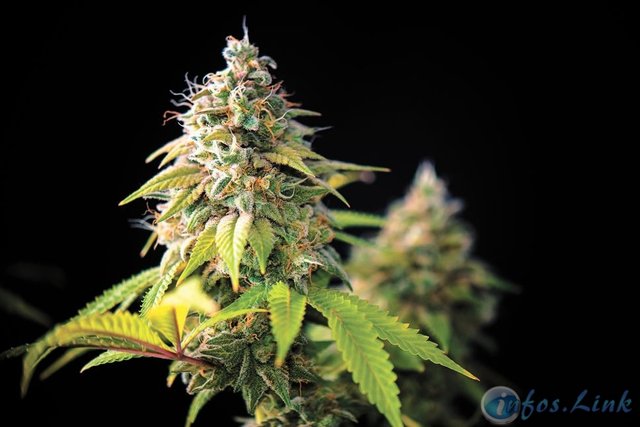
The psychotropic effects of cannabis are due to a family of molecules called cannabinoids. Surprisingly, the brain produces its own cannabinoids, and the cerebral effects of cannabis are caused by the activation of an endogenous system (endocannabinoid) that has developed in most animals well before the appearance of the plant Cannabis sativa on Earth.
An old system
A basic principle of pharmacology is that a substance must necessarily interact with a molecular target to provoke a biological response. In other words, if a substance such as cannabis is capable of causing psychotropic effects, it is because its main constituents (cannabidiol (CBD) and Δ9-tetrahydrocannabinol (THC)) bind specifically to certain receptors (targets) naturally present in the body. brain, and may subsequently trigger a biological response.
The discovery of these receptors, called CB1 and CB2, has made it possible to demonstrate the presence of an endocannabinoid system, not only in humans, but also in most other animals, even those that are very far from us from evolutionary view (fish, birds and reptiles). In practice, this means that the first cannabinoid receptors appeared for the first time about 400 million years ago, long before the cannabis plant made its appearance on Earth (there are about 35 to 65 million years). These receptors are therefore part of a basic mechanism involved in the functioning of the brain, and which appeared very early in the evolution of animal life.
Energy management
The two most studied endocannabinoids are anandamide (arachidonoylethanolamine) and 2-arachidonoylglycerol (2-AG), two molecules derived from a fatty acid present in the membranes of our cells, arachidonic acid. These two endocannabinoids are neurotransmitters that play very important roles in controlling metabolism, especially anything related to food intake (appetite stimulation) and calorie storage. (1)The blood levels of endocannabinoids vary considerably during the day, with the highest concentrations reached around noon, and the lowest concentrations during sleep, which makes it possible to synchronize the appetite with the waking cycle. This important role of endocannabinoids in controlling appetite also explains why CB1 receptor activation by cannabis THC is generally associated with a noticeable increase in hunger (the so-called munchies) among people who have used the drug.
Endocannabinoids and exercise
Several studies have found that exercise increases blood levels of endocannabinoids. In addition to reflecting the central role of these molecules in the control of metabolism, recent data suggest that this mobilization could also participate in the feeling of well-being that accompanies physical activity, which is commonly known as euphoria. runner's high. (2)The researchers observed that physical exercise caused a significant increase in anandamide, and that this molecule was responsible for the anxiolytic and analgesic effect of exercise. For example, when animals were treated with drugs blocking endocannabinoid receptors, the post-exercise buzz disappeared completely, while anti-endorphin drugs had no effect. In other words, the soothing effect of exercise would be much more a question of endogenous cannabis than opiates.
You got a 100.00% upvote from @botcoin courtesy of @infoslink!
Downvoting a post can decrease pending rewards and make it less visible. Common reasons:
Submit
Hi, @infoslink!
You just got a 2.85% upvote from SteemPlus!
To get higher upvotes, earn more SteemPlus Points (SPP). On your Steemit wallet, check your SPP balance and click on "How to earn SPP?" to find out all the ways to earn.
If you're not using SteemPlus yet, please check our last posts in here to see the many ways in which SteemPlus can improve your Steem experience on Steemit and Busy.
Downvoting a post can decrease pending rewards and make it less visible. Common reasons:
Submit
Very interesting information ..
Downvoting a post can decrease pending rewards and make it less visible. Common reasons:
Submit